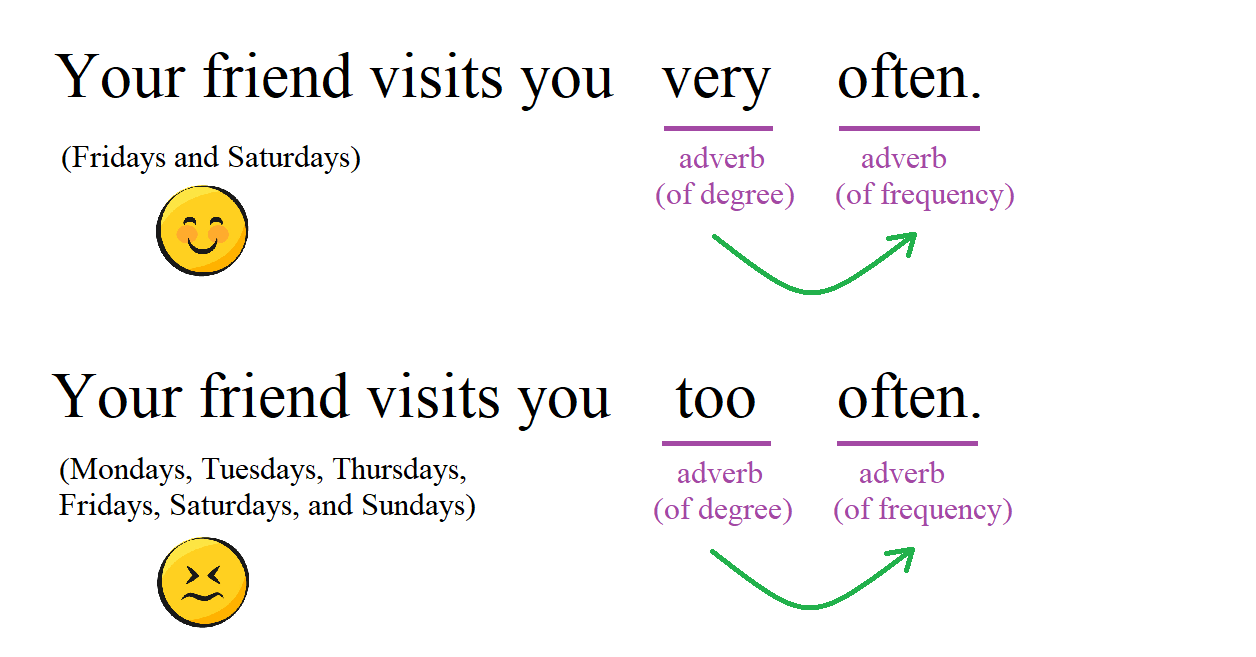Adverb that Modifies Another Adverb
- Adverb can modify another adverb.
- Typically, the adverb modifying another adverb comes before it.
- Examples of an adverb modifying an adverb are "very quickly" and "too often".
An adverb can modify another adverb. Let's see how it's done.
Placement of Adverb Modifying Adverb
Let's say you have an adverb. If you want to modify it, place a second adverb before it.
Example: "She sings very beautifully." - "very" modifies "beautifully".

Examples:
-
He runs very quickly.
"very" (adverb of degree) modifies "quickly" (adverb of manner)
-
I work really hard every day.
"really" (adverb of degree) modifies "hard" (adverb of manner)
As you can see, we often use Adverb 1 (adverb of degree) to modify Adverb 2 (adverb of manner / adverb of frequency, etc). Just remember Adverb 1 - Adverb 2 pattern.

Examples:
-
Your friend visits you very often.
"very" (adverb of degree) - "often" (adverb of frequency)
-
Your friend visits you too often.
"too" (adverb of degree) - "often" (adverb of frequency)
Pratiquez ce sujet avec le AI English Tutor
AI English Tutor vous apprendra la grammaire et la pratiquera avec vous sous forme de conversation. De plus, plus de 100 questions pratiques sur ce sujet pour consolider votre compréhension.
Essayez ALULA gratuitement sur votre téléphone ou votre tablette








Avez-vous des questions sur cette leçon ? Posez-les dans la section des commentaires, ci-dessous.